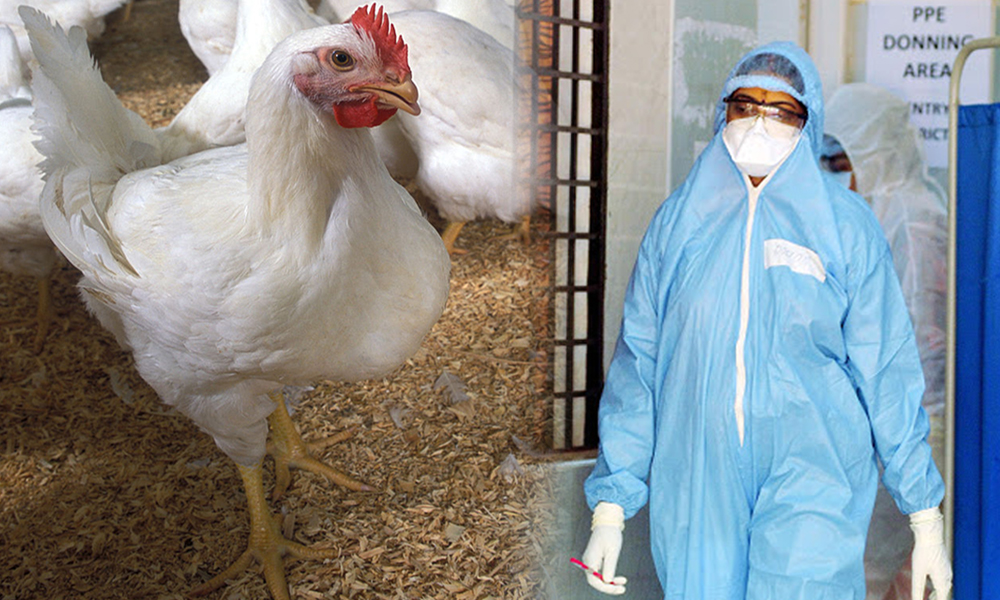China detects COVID-19 in a shipment of Brazilian chickens: an unusual situation
Bizarre detection of covid-19 in chickens
According to the Chinese authorities, the virus was found in a sample collected on the product’s packaging. WHO rules out that the disease can be transmitted through the food chain.
The Chinese authorities reported this Thursday that, in a routine control, COVID-19 had been detected in a shipment of chicken wings imported from Brazil. The virus was found, according to China, in a sample collected in the city of Shenzhen, near Hong Kong, in southern China. According to the Chinese Government, the chicken came from a plant of the Brazilian company Aurora in the state of Santa Catarina. Although people who were in contact with the contaminated products tested negative for coronavirus, the news has raised concerns about the possibility that the food could cause new outbreaks. The Chinese alert has also brought to the table a possible new element in the global trade war.

The news came a day after traces of the coronavirus were found on packages of frozen shrimp from Ecuador in a city in eastern China’s Anhui province. Also this week, the Government of New Zealand has begun to investigate the hypothesis that a new outbreak started in a refrigerator that receives imported products.
Given this news, the World Health Organization (WHO) minimised the risk that the coronavirus could be transmitted through food packaging. “There is no evidence that the food chain contributes to the transmission of the virus,” said WHO emergency director Michael Ryan.
The Brazilian Ministry of Agriculture reported that the Chinese authorities had not yet officially notified the case, but had contacted the General Administration of Customs of China to get more information. The Brazilian Association of Animal Protein (ABPA) reported, in a statement, that the productive sector is analysing the information. “It is not yet clear when the packaging was contaminated and if it occurred during the export transportation process,” the note says. For now, there will be no new restrictions on Brazilian imports, according to the Chinese Embassy in Brazil. Currently, six slaughterhouses have been banned from exporting their products to China due to concerns with the coronavirus.

The Minister of Agriculture, Tereza Cristina, told the Folha de S. Paulo newspaper that the discovery of an infected chicken imported from Brazil is not positive for the image of the country – the second in the world with the most infections and deaths from the disease, which they have already exceeded 105,000 – but he said that he does not believe that the episode will affect the export of the Brazilian product.
In the opinion of the president of the Brazilian Association of Foreign Trade (AEB), José Augusto de Castro, although not many details have been given or a formal statement has been issued to the Brazilian government, the news of the contamination of the chicken generates fear among buyers. “Commercially, it raises concerns, both direct – about how China, which is our biggest chicken importer and our biggest trading partner, will react – and from other buyers”, he says. Brazil, the world’s largest producer of chicken meat, was until 2017 the main supplier of frozen chicken to China, worth close to $ 1 billion a year.
Castro points out, however, that some advertisements from China can sometimes have only a commercial purpose. “This ad from China can be true or false, they may want a price discount. You even start thinking absurd things like: “Wouldn’t China publish this news to please the United States, which is our competitor in the export of chicken? I don’t know, it could all be ” he says. For the president of the AEB, for now, the impact does not seem to be great, even because the WHO has mitigated the risks of contamination through food.

In this first semester, the export of chicken meat from Brazil has increased by 1.7% compared to the same months of 2019, reaching 2.11 million tons, according to ABPA data. The southern region —where the infected sample is slaughtered— is responsible for 62% of the total export; the Southeast, 18% and the Center West, 14%.
In a note, the Santa Catarina Poultry Association said it was in contact with the Chinese authorities to find out more about what happened. However, the organization stated that “Brazil is a country of excellence in the production of animal protein in the world, both in terms of health and the safety of production processes, constantly audited by more than 150 countries to which it is exported and adheres to the criteria of the product”.




